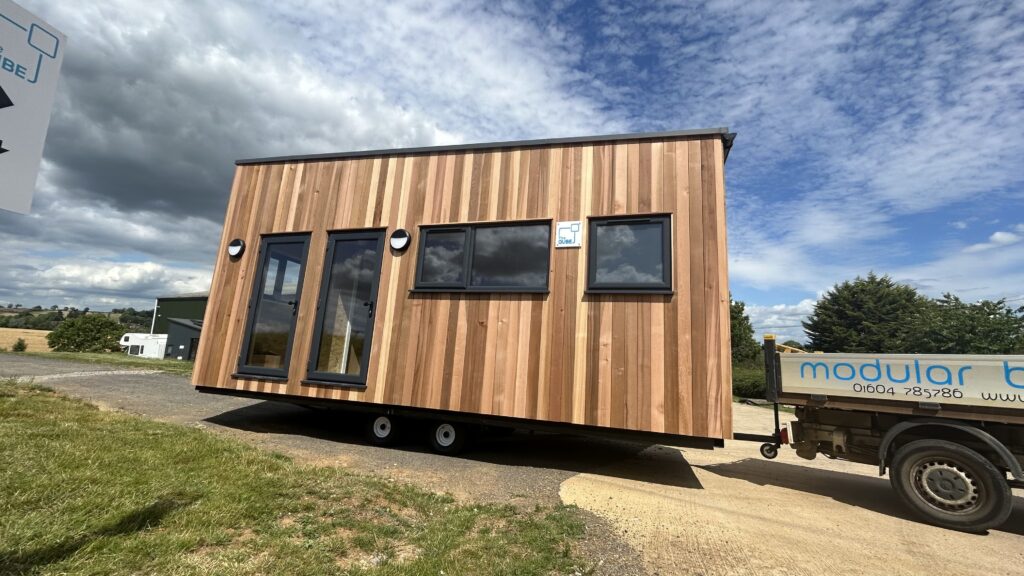

Cirencester Energy Demonstration Tiny Home
Cirencester College is a progressive and high-performing Sixth Form College situated in the Cotswolds. With some 3,000 students, their catchment area is over 60 miles wide and whilst predominantly rural, it does include the larger cities of Gloucester, Cheltenham and Swindon. The college, which is not highly selective, has a diverse intake and performs superbly both regionally and nationally, with a well-deserved reputation for excellence.
The Tiny ‘Green’ House Project
The College are usually at the forefront of new initiatives and are always looking for new ways to support local, regional and national skills agendas. The ever-developing green energy and sustainable living technologies sector is just one area where the College is pioneering progress.
“We wanted a house to support our green engineering and construction provision, where we can demonstrate a number of green energy sources at work and showcase highly efficient modern building technology.” says Matt Reynolds, Vice Principal, “We needed a bespoke space where we can model different types of occupation while learners track and monitor energy production and consumption. Our research led us to Qube.”
The Tiny ‘Green’ House Project is a component of a larger response to the green skills training needs of the South West region, involving a number of other colleges working on different projects and is funded via a Strategic Development Fund grant.
The Design
Working closely with Qube, Cirencester College were able to explore the potential of a Tiny House to answer these needs. A welcoming factory tour and review of demonstration structures led to more granular discussion and the concept development began.
“We worked collaboratively with Jordan and Lauren at Qube to develop our plans.” continues Matt, “It was clear from the start they understood what we wanted and were just as excited as us about developing a new resource. The design and concept came together quickly.”
The design concept evolved into a Tiny House adaptation utilising an ‘occupation space’ with living quarters, bathroom, kitchen, etc, and then a monitoring room for tracking and recording the equipment and building performance. The house is constructed using the most energy efficient and sustainable resources, while the equipment will demonstrate solar and wind power generation, battery storage and power conversion, the latest heating technology, grey water recycling and even rainwater harvesting.

Working with Qube
“The people at Qube have been responsive and quick to help with our requests.” says Matt, “This is an innovative design and something that will have an impact on training future engineers. Qube have been onboard from the start and valuable in helping us spec the project out with innovative technology. They’ve been very keen to help us achieve our goal.”


















